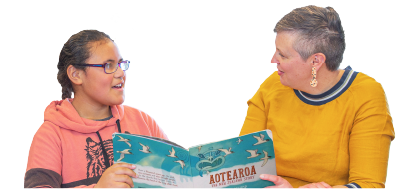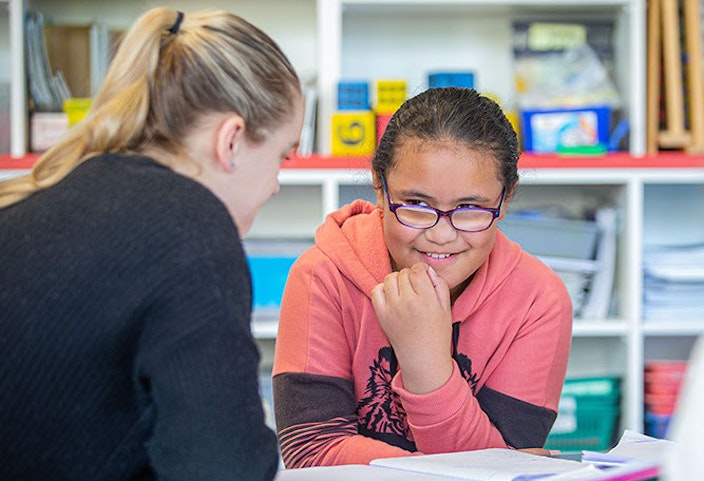Pacific values
Pacific values
Pacific values vary from island to island and it is important to understand the differences between, and within, cultural groups.
Each island has unique traditions, customs, languages, and identity. Values such as respect, service, leadership, family, belonging, and relationships are important within Pacific cultures. The values that Pacific learners hold will also be informed by living and working in New Zealand. As with any group, there may be just as many similarities as differences across the learners you see every day.
When you understand the values of Pacific peoples you are in a better position to respond and acknowledge their differences. Your learners bring values that are important and matter to them. This includes cultural behaviour, ideals, standards, and morals. Pacific values are beliefs that Pacific communities regard as desirable, worthy of passing down to generations, and worthy of sharing with others. Your learners will have values that are important to them and their families and they may be the same or different from your personal values.
Understanding different Pacific values will help you to communicate with your learners and their families and communities in a culturally responsive way. One of the key things that will enable effective interactions with Pacific learners is to build a genuine personal connection that allows open and trusting communication.
-
Reciprocity
Reciprocity is about mutual dependency, mutual benefit, and agreement. This is achieved by acknowledging the value of reciprocation in relationships and the duty of care between yourself and your learners. It is about equal interaction and sharing the same views. Mutual help, collective effort and interdependence are more effective than individualism.
-
Relationships
Relationships are of the utmost importance to Pacific learners. In a Pacific context, this might be seen in the way Pacific learners interact with each other, which often involves a lot of laughter and food. Creating an environment where students feel comfortable enough to connect with staff and other students is important.
-
Collectivism
Pacific peoples operate in a communal setting. The Pacific way of viewing the world is mostly driven by what is commonly perceived as acceptable to the community. This includes teamwork, consultation, and engagement with others in a collective manner, and is achieved by working together to achieve common goals and consensus.
-
Service
Pacific people love to help and often work well in collective settings. Service is a significant part of Pacific learners’ lives at home, at church, or in the community. Encourage your learners to participate in your learning environment by creating experiences that relate to their active participation at their church, in their families or community. These experiences can help your learners feel valued.
-
Respect
Pacific peoples learn from an early age to show respect when relating to one another. This is expected behaviour. The concept of respect is often a reflection of their home environment, including showing respect towards elders, parents, women, children, and people in positions of authority. Respect includes acknowledging someone’s status and observing proper etiquette when students view and speak to teachers and people in positions of authority. One example of this is the cultural communication practice of lē-tautala in Fa’a Samoa. Lē-tautala is student silence, and it has multiple meanings for Samoan learners. In many Samoan homes, lē-tautala includes the expectation that children keep quiet out of respect for their elders, and this extends to learning environments (Hang, 2011, pg. 2).
-
Spirituality
Pacific learners value their spiritual faith and particularly the Christian faith, which is a vital part of their lives. Pacific learners may feel uncomfortable if jokes are made about their faith, church or spirituality. It is important to be mindful of this. Starting and ending the day with a prayer, and the blessing of food is important to many Pacific learners.
-
Leadership
A common belief held by Pacific people is that in order to lead, one must follow. This aligns with the value of service. Pacific learners may view leadership differently based on how they see leadership within their home and community contexts. It is important to embrace the diversity of what leadership may represent. Some Pacific learners may be outspoken, while others embody the sense of humility. It is important to encourage your learners to achieve their aspirations through education and influence other Pacific learners to do the same.
-
Family
Some, but not all, Pacific peoples live in extended families. For most though, family is the centre of the community and their way of life. This brings a sense of identity and belonging. Pacific communities are collective; an individual will always identify themselves within the context of their families and wider communities. You will find many Pacific learners put the interests of their families before their own.
-
Love
Love: a universal value, underpinning much of what all people do. In the Pacific context, it is the showing of care, kindness, and concern for others that drives Pacific learners to prioritise family events or issues over their own studies. For Pacific people, love is manifested through their actions, and particularly by putting others before themselves.


